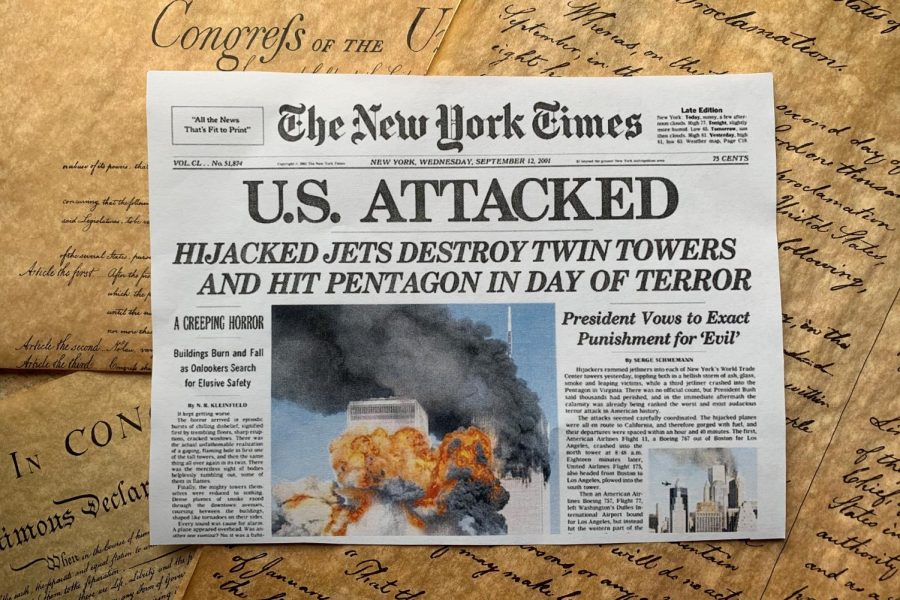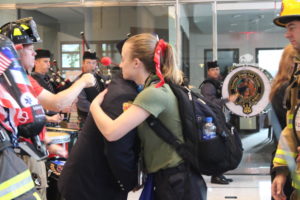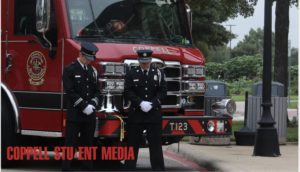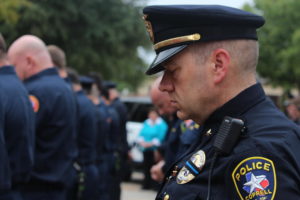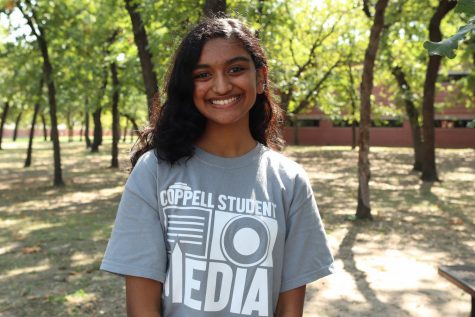Disconnected from modern history
My generation lacks vivid experience to associate with tragedy
Today marks the 19th anniversary of the terrorist attacks on Sept. 11, 2001. The Sidekick executive editor-in-chief Sally Parampottil feels her perspective on the tragedy is less emotion-based because she did not experience it and resembles more of that felt towards any other pivotal event in American history.
September 11, 2020
I can’t tell you where I was and what I was doing on Sept. 11, 2001.
I wasn’t born until Sept. 2, 2002.
Because I never experienced life prior to the attacks, I cannot understand the difference of life before and after beyond what I hear or read. The fear and uncertainty that crippled the nation following its first foreign attack on home soil since World War II is just an idea to me, not something I can vividly recall. The concept of an airport without a dozen layers of security is as foreign as a voting population without people of color, women and non-landowners.
The emotional attachment to even the greatest of tragedies fades when a person didn’t live through it. Even someone as emotional as myself – who has cried annually on 9/11, occasionally on the Fourth of July and sporadically throughout the year about an assortment of historical tragedies – will not feel the same impact when commemorating or even studying the event as someone who remembers the day it happened or someone who lost a person close to them because of it.
It becomes an objective piece of history.
It holds the same value as other defining moments in America’s story, one of those significant events that changes society. I’m in the first generation to see 9/11 as – not a past memory – just the past.
A generation born after the terrorist attacks sees the events in a different light. In addition to honoring the lives lost, 9/11 becomes an event studied.
This means acknowledging the actions taken by the U.S. government in response killed more innocent civilians in the Middle East than the terrorist attacks themselves, along with addressing the rise of racism, especially against Arabic and South Asian people. The way we all look at the effects and social changes following Pearl Harbor, my generation and those to follow will examine all which occurred on and after Sept. 11, 2001. It is taking everything taught to us through people with first hand accounts and supplementing the deficit in personal experience with more information beyond just what people remember witnessing.
This does not take away from the tragedy of the event. One can acknowledge multiple groups of people suffering at the same time without playing down the significance of any of them. Transitioning from a pure memorial to a combination of honoring and critical analysis of history is not something to resist, as it just ends up happening with time. As with Pearl Harbor, the battle of the Alamo, even the Boston Tea Party, history remembers the victims while also going into the cause and effect of what the event means. It is simply a lot easier to move into the analytical mindset for what occurred when one did not feel the emotions as it happened, when empathy, grief and heartache came solely from secondary sources.
My mom lived in New York for most of her life. Thankfully, she had moved to Texas before 2001, but her attachment to New York in specific makes 9/11 so much more impactful. She had been inside the buildings years before they were struck; she had worked in one of them for a time. Her perception will always be more different than mine because she has vivid memories of when it happened.
As someone who intends on studying history – particularly American history – in her future, I can say this was one of the pivotal moments of modern history. It will be taught in schools as a catalyst for national security, war and a new sense of nationalism. However, for my generation onwards, it will be learned information – not experienced.
I can’t remember 9/11, but I will never forget.
Follow Sally (@SParampottil) and @CHSCampusNews on Twitter.



